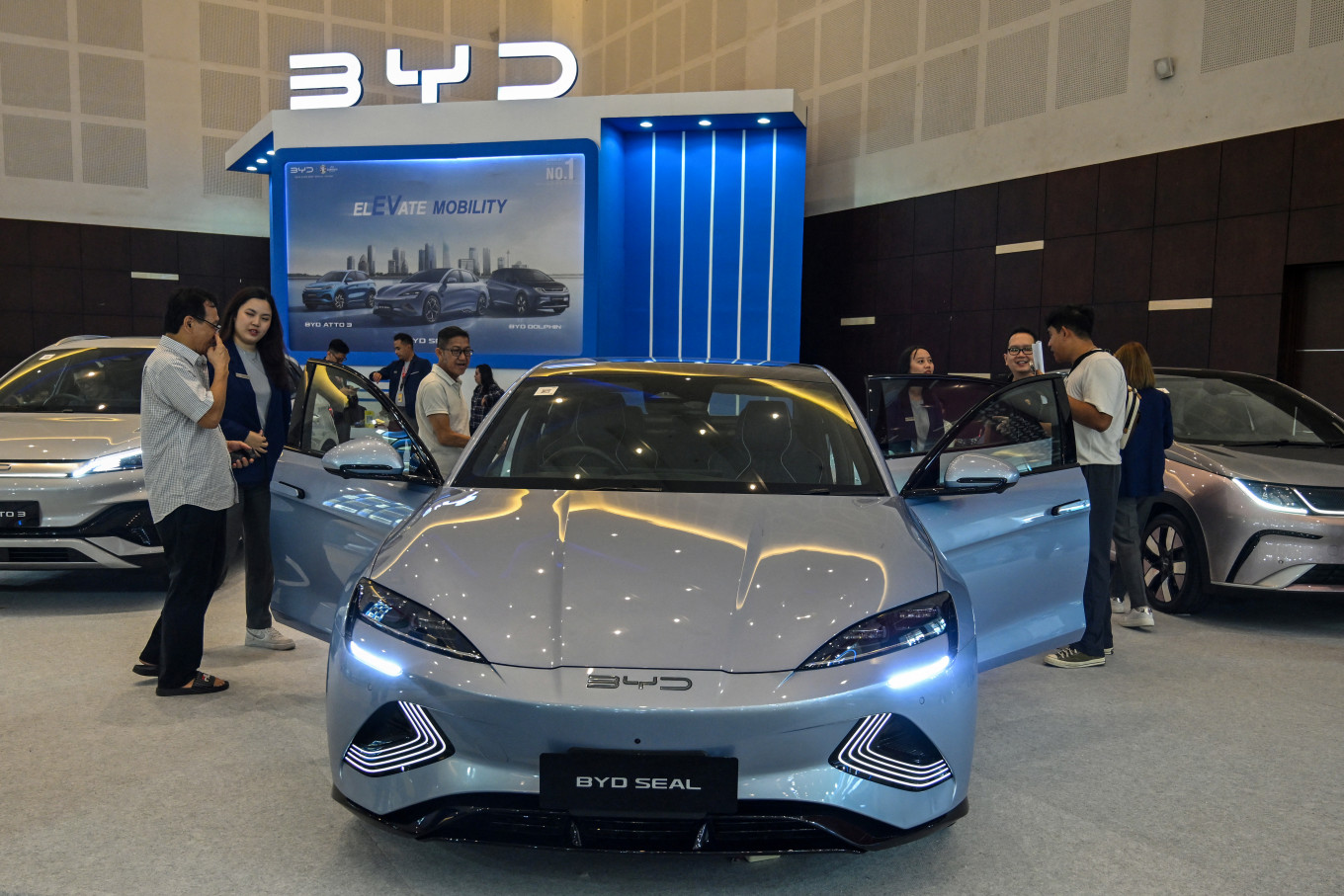Popular Reads
Top Results
Can't find what you're looking for?
View all search resultsPopular Reads
Top Results
Can't find what you're looking for?
View all search resultsIt’s time for a progressive wealth tax in Indonesia
Despite government efforts to improve the tax ratio, recent policies appear to favor the wealthy.
Change text size
Gift Premium Articles
to Anyone
P
resident Prabowo Subianto has set an ambitious goal to raise Indonesia’s tax ratio to 23 percent by 2030. With the tax ratio stagnating at 10 to 12 percent for the past few years, achieving this target will require a doubling of current levels within just five years. However, Indonesia's tax revenue structure is heavily reliant on corporate taxes and value-added tax (VAT). According to the Organisation for Economic Co-operation and Development (OECD), countries with higher tax ratios typically derive a significant portion of their revenue from personal income tax (PIT). In 2022, Indonesia's PIT-to-GDP ratio stood at just 1.6 percent, contributing only 13.5 percent of total tax revenue, underscoring the immense challenge ahead.
Despite government efforts to improve the tax ratio, recent policies appear to favor the wealthy. The upcoming Tax Amnesty III program, for example, will benefit the super-rich by forgiving past non-compliance without penalties. Additionally, the planned increase in VAT to 12 percent in 2025 is a move toward regressive taxation. While VAT is easier to collect, it will place a heavier burden on middle-income groups, potentially weakening their purchasing power and slowing economic growth.
Meanwhile, the wealthiest individuals contribute minimally to tax revenue. In 2022, Individual PPh 25/29, income tax for non-employees, typically wealthy individuals, accounted for only 6 percent of total PIT revenue, while PPh 21, which applies to employees, contributed 94 percent (DGT Annual Report, 2022). This indicates that tax revenue from the wealthy group is far below its potential. This gap exists because much of their wealth is held in assets, shares and unrealized gains, which remain untaxed under the current system. A wealth tax targeting net wealth could significantly help increase Indonesia's tax ratio.
A wealth tax, levied on an individual’s net wealth (assets minus liabilities) above an exemption threshold, can be an appealing solution. It is more reflective of the true economic resources and ability to pay than the current income tax system. Without such a tax, Indonesia risks losing out on significant revenue. According to the Tax Justice Network, taxing the top wealth percentile could generate Rp 125 trillion (US$8.06 billion). Celios research in 2024 also found that the combined wealth of Indonesia’s 50 richest individuals is equivalent to that of 50 million ordinary Indonesians. A wealth tax on just these 50 individuals could raise Rp 81.6 trillion.
The OECD, in its report The Role and Design of Net Wealth Taxes in the OECD, supports wealth tax in countries with low PIT contributions, minimal capital gains taxes and no inheritance taxes, all criteria Indonesia meets. Beyond tax revenue, a wealth tax could also play a critical role in addressing Indonesia’s widening wealth inequality by redistributing resources more equitably.
Despite the potential revenue of wealth tax, there are concerns that wealth tax would discourage economic stability and lead to capital flight. Economist Gabriel Zucman argues that a low-rate wealth tax is unlikely to disrupt macroeconomic savings or investment flows. Similarly, the EU Tax Observatory's Blueprint for a Coordinated Minimum Effective Taxation Standard for Ultra-High-Net-Worth Individuals demonstrates that migration responses to wealth taxes are minimal. One can also refer to the failure of wealth tax enforcement in European countries as a counterargument for wealth tax policy.
There are several key considerations that policymakers must address to successfully implement a wealth tax. First, the government must carefully design a sound, progressive wealth tax policy. The tax should clearly define the target group, focusing on individuals at the very top of the wealth distribution. This can be achieved by setting a high exemption threshold, ensuring that only the super-rich are taxed, and avoiding liquidity constraints. The wealth tax should have a broad base, minimizing relief for specific asset types to reduce high administrative costs.



















